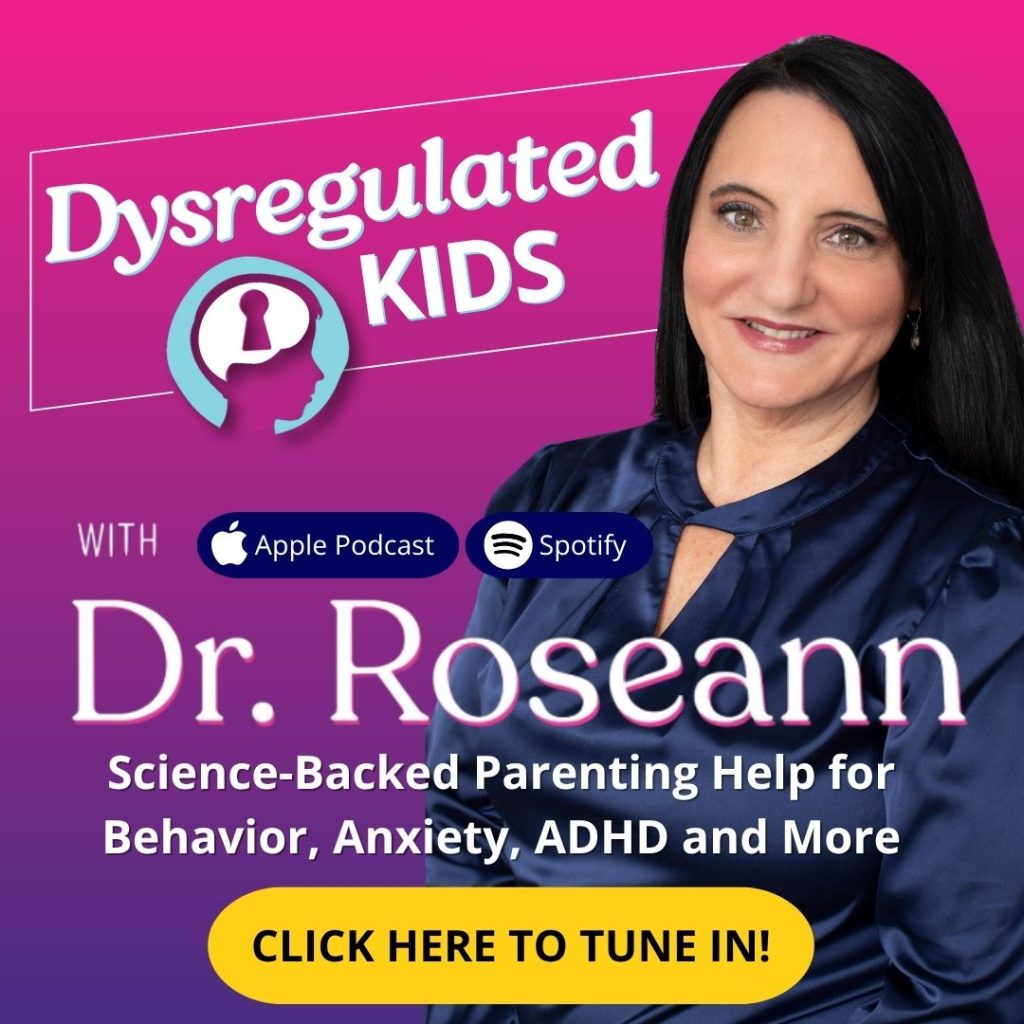Estimated reading time: 9 minutes
Not every kid with PANS or PANDAS ends up with Obsessive-Compulsive Disorder (OCD). But here’s the kicker: many kids dealing with OCD actually have these immune-related issues hiding beneath the surface.
And when you connect those dots, it changes everything. Sometimes, symptoms creep in slowly. Other times, they hit like a storm, triggered by an infection.
Thanks to growing research, we now know infections can directly impact the brain, causing rapid onset OCD and other neuropsychiatric symptoms in kids and adults with PANS and PANDAS.
Why Is it Important to Understand the Connection Between PANS/PANDAS and OCD?
Figuring out why your child suddenly struggles with OCD can feel like a long, confusing road. Many parents, watching their child’s anxiety and compulsions flare up almost overnight, wonder if something deeper is at play or if they’re missing a crucial piece of the puzzle.
One of the biggest challenges is that OCD symptoms:
- Often build slowly over time
- Tend to be internalized, making them hard to spot
- Can come and go, ebbing and flowing unpredictably
Because of these factors, connecting OCD behaviors to infections or brain inflammation can feel impossible—especially when you’re deeply involved in caring for your child daily.
Recognizing that infections like PANS or PANDAS might be behind your child’s OCD changes everything. This understanding:
- Brings clarity and hope
- Shows that symptoms could be an immune system response—not a permanent condition
- Opens the door for personalized treatment approaches
- Helps avoid misdiagnoses that can delay healing
What are the symptoms of OCD?
OCD shows up when a child gets caught in a loop of intrusive, overwhelming thoughts that just won’t let go.
These aren’t just passing worries; they’re intense and scary, and your child might not even know why they feel so panicked.
To cope, they may start doing certain things over and over—like checking, counting, or asking the same question—just to feel a tiny bit safer or calmer.
These rituals are like their brain’s pause button, offering a quick moment of relief in what can feel like nonstop mental chaos.

OCD doesn’t look the same for every child.
And the symptoms? They don’t stick around in one form—they ebb and flow, often triggered by stress, sickness, or sudden changes that throw their nervous system off balance.
If your child has PANS or PANDAS alongside OCD, understanding these symptoms is key.
Knowing how OCD works in the brain—and how it connects with infections—helps you better support your child with the right, focused care.
After all, calming the brain first unlocks your child’s potential and paves the way for healing.

Tucker’s Story
All three of Tucker’s siblings developed PANS, each beginning with a sudden burst of OCD symptoms. After a long, exhausting search for help, their parents finally got infections under control—but Tucker’s OCD stuck around.
Despite addressing lingering infections and gut issues, his symptoms didn’t improve. It wasn’t until they joined our BrainBehaviorReset™ Program that the full picture became clear.
A QEEG revealed how chronic stress and anxiety had rewired Tucker’s brain. OCD had become a loop—his nervous system reacting with obsessive, ritualistic behaviors that only grew stronger over time.
With our program, Tucker received:
- Neurofeedback
- Targeted nutrient support
- Parent education and coaching
- ERP therapy (Exposure and Response Prevention) tailored for kids
As a result, Tucker and his family learned to stop feeding the OCD. He let go of the intrusive thoughts that once controlled his life.
The outcome?
✅ All OCD symptoms resolved
✅ Tucker regained his joy
✅ His family found peace again
When Should You Consider PANS and PANDAS When Your Child Has OCD?
If your child’s OCD symptoms seemed to show up overnight—out of nowhere and all at once—there’s a strong chance PANS or PANDAS could be at the root.
Both are known for triggering a sudden and intense onset of OCD, often showing up with other changes like:
- Behavioral shifts
- Cognitive issues
- Motor skills problems
If OCD comes on fast and hard, don’t brush it off as “just anxiety.” This could be your child’s brain sounding the alarm in response to inflammation from an infection.
And when you recognize that, you can stop spinning your wheels—and finally start moving toward real healing.
Can Strep Trigger OCD? Here’s What Research Says
Pediatric Autoimmune Neuropsychiatric Disorder Associated with Streptococcus—better known as PANDAS—has been documented in medical literature for decades.
This condition is defined by:
- Sudden onset of obsessive thoughts
- Compulsive behaviors and rituals
- Accompanying movement or behavioral changes
What usually sets it off? An infection from Streptococcus pyogenes—more commonly known as Group A Strep. According to the CDC, in some cases, strep or Scarlet Fever can even lead to rheumatic fever within one to five weeks.
Research from the National Institute of Mental Health (NIMH) has shown:
- Certain strep-triggered antibodies can mistakenly attack the brain
- This immune response can lead to OCD, motor tics, and other neuropsychiatric symptoms
I remember learning about OCD after strep back in grad school in the mid-90s. It hit home too—one of my closest friends had a husband who battled it in the 1970s, and their daughter developed it thirty years later. And still, shockingly few providers know how to spot it.
Current estimates suggest that 1 in every 150 to 200 children may be affected by PANS or PANDAS. And yet, so many kids suffer needlessly because outdated mental health models don’t recognize what’s really going on.
Here’s why:
- These disorders remain poorly understood
- Too many kids are misdiagnosed or dismissed by traditional systems
- Families are left scrambling for help while symptoms worsen
This is not “just anxiety.” This is an infection-driven inflammatory brain response. And the earlier you recognize it, the better your chances of getting your child the care they need.
How Can QEEG Brain Mapping Help You Understand What’s Really Driving Your Child’s OCD?
At our Ridgefield, CT center, we’ve seen a striking pattern—more than 80% of the children we work with who have OCD are actually dealing with inflammation-based brain dysfunction, often triggered by infections or environmental toxins.
That’s why we don’t guess—we test.
As part of our intake, we use QEEG brain mapping, a non-invasive tool that measures brainwave activity. It gives us a clear, objective picture of how the brain is functioning—where it’s overstimulated, underactive, or stuck in survival mode.
From this, we’ve identified four common OCD brain patterns:
- Two phenotypes tied to inflammation and immune responses
- Two phenotypes reflecting more genetically based OCD and anxiety
This data helps us build precise treatment plans tailored to each child’s unique brain. And that means less trial-and-error, less suffering, and more real progress.
Because let’s be real—if you’re not getting to the root cause, you’re just chasing symptoms.
That’s why our QEEG Brain Mapping and Brain Check process are essential to our BrainBehaviorReset™ Program—so we can calm the brain first and pave the way for healing.
How Do You Know If It’s PANS or PANDAS?
PANS and PANDAS aren’t identical twins—but they definitely share some DNA when it comes to red flags. One of the biggest? Sudden, dramatic onset of neuropsychiatric symptoms that popped out of nowhere (Arcilla & Singla, 2024)..
So what’s the difference?
- PANDAS is triggered by a strep infection
- PANS can be caused by any infection, toxin, or metabolic stressor
Once an infection enters your child’s body, it can hijack the immune system and cause widespread inflammation—especially in the brain. And while strep might be the first culprit, it rarely acts alone.
Over time, it’s common for multiple infections, toxins, and immune system stressors to pile on. But there’s more.
Your child’s gut-brain connection plays a huge role in this cascade (Quagliariello et al., 2018).
Stress, viruses, antibiotics, heavy metals—they all chip away at the gut lining and disrupt healthy gut bacteria. This shift throws off neurotransmitter production, making symptoms worse and healing harder.
You can’t guess your way out of this. That’s why we run comprehensive lab testing. We dig deep into:
- Past and current infections
- Immune and inflammation markers
- Toxin exposure
- Nutrient levels that support brain and gut repair
If your child has had strep—even if it was years ago—those antibodies could still be affecting their brain. And if you’re only treating behavior without checking the biology, you’re missing a major piece of the puzzle.
Remember: You can’t heal what you don’t identify.
Calm the brain first. That’s how you unlock your child’s potential.
How Do You Effectively Treat OCD Caused by PANS or PANDAS?
Healing starts in the brain. Without calming that revved-up nervous system, the body stays stuck fighting stress instead of healing infection. This truth guides everything I do.
1. BrainBehaviorReset™ Program
At my Ridgefield center, families from around the globe join the BrainBehaviorReset™ Program. Many have amazing doctors but still feel stuck.
That’s because a nervous system caught in overdrive needs more than medication or talk therapy alone.
This program blends decades of science-backed tools into a personalized plan, including:
- Neurofeedback to calm the brain
- Coaching to build practical skills
- Psychotherapy to address intrusive thoughts and fears
2. Exposure and Response Prevention (ERP) Therapy
We rely on Exposure and Response Prevention (ERP)—the gold standard for OCD.
Sometimes OCD feels impossible to treat because therapists lack:
- Deep understanding of OCD neuroscience
- Proper training in safe exposure methods
CBT by itself rarely works for OCD unless it includes carefully managed exposure opportunities. Science shows this: only when the brain finds calm can immune function, hormones, neurotransmitters, and the gut microbiome rebalance.
That’s the foundation we build on. Together, we’ll navigate this journey, providing the support and expertise needed to restore balance and help your child thrive.
Parent Action Steps
FAQs
Can strep throat cause OCD in adults?*
Yes, it can—though it’s much less common than in kids. Sometimes, strep triggers an immune response that affects the brain, leading to OCD symptoms. We’re still learning, but infections can impact brains of all ages.
Does OCD develop for everyone diagnosed with PANDAS?
Not always. OCD is common, but some kids have tics, mood shifts, or anxiety instead. Every child’s experience looks different, but infections triggering the brain are at the heart of it.
What are the symptoms of PANDAS?
PANDAS can look different for each child, but here are some of the most common signs to watch for:
- Sudden onset of obsessive-compulsive behaviors
- Tics or involuntary movements
- Extreme mood changes, like irritability or anxiety
- Intense fear of being away from parents (separation anxiety)
- Trouble sleeping, often with fears or nightmares
- Difficulty focusing or increased hyperactivity
- Noticeable drop in school performance or social challenges
It can feel overwhelming when these changes appear out of nowhere—like your child is slipping away. But with the right support and care, healing is possible.
Why do Some Children Get PANS/PANDAS and Others Don’t?
It’s a tough question. Genetics, like MTHFR mutations, might make some kids less able to clear toxins, leaving their immune system more vulnerable. When infections spark inflammation, the brain gets stuck in fight or flight.
The good news? With the right support, healing can happen—and you’re not alone on this journey.
Citations
Arcilla, C. K., & Singla, R. (2024). Pediatric Autoimmune Neuropsychiatric Disorders Associated With Streptococcal Infections (PANDAS). In StatPearls. StatPearls Publishing.
National Institute of Mental Health (NIMH). PANDAS: Questions and answers. National Institute of Mental Health. Retrieved on January 30, 2022
Quagliariello, A., Del Chierico, F., Russo, A., Reddel, S., Conte, G., Lopetuso, L. R., Ianiro, G., Dallapiccola, B., Cardona, F., Gasbarrini, A., & Putignani, L. (2018). Gut Microbiota Profiling and Gut-Brain Crosstalk in Children Affected by Pediatric Acute-Onset Neuropsychiatric Syndrome and Pediatric Autoimmune Neuropsychiatric Disorders Associated With Streptococcal Infections. Frontiers in microbiology, 9, 675. https://doi.org/10.3389/fmicb.2018.00675
Always remember… “Calm Brain, Happy Family™”
Disclaimer: This article is not intended to give health advice and it is recommended to consult with a physician before beginning any new wellness regime. *The effectiveness of diagnosis and treatment vary by patient and condition. Dr. Roseann Capanna-Hodge, LLC does not guarantee certain results.
Are you looking for SOLUTIONS for your struggling child or teen?
Dr. Roseann and her team are all about science-backed solutions, so you are in the right place!
©Roseann Capanna-Hodge 2025










